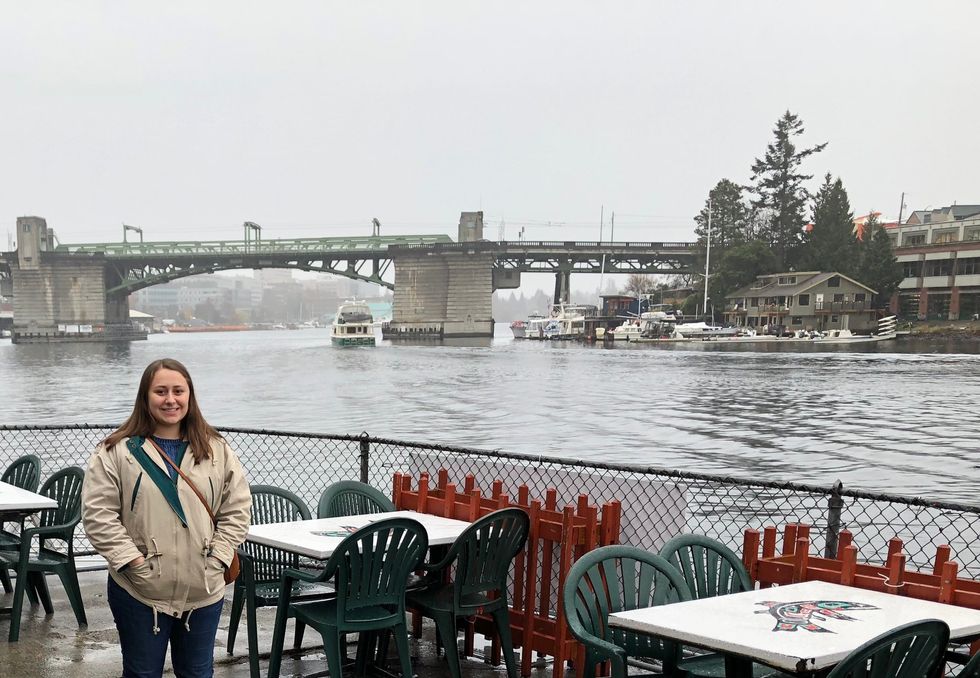One of the most challenging things I come across in my day-to-day is the question "Where are you from?" Because the truth is, I don't really know.
If you're looking for where I was born, the answer would be Seattle. If you want to know where my family is now, that would be Dallas. If you mean where I was before here, it would be California.
That's only geographically. If we delve into the emotional side of the topic, it gets even more complicated.
As so many southern moms proudly display on a canvas bought at Hobby Lobby, home is indeed where the heart is. But then, do I choose between my constructed family in my college town, my biological family up in Dallas, or the city where I feel the most kinship with?
As more time goes on, I realize that there really will never be a concrete answer to that question. It also means that question will never get any easier to answer when asked.
Little did I know when I first moved to Texas that this big, identity-defining question would never be appeased.
When I first moved to Texas at the impressionable age of 14, I had just came from a place that valued diversity, allowed students to learn at their own pace and where students were allowed to wear shorts to school.
My very first day of school in Texas, I was sent to the principle's office and forced to change into big, baggy grey sweats with "OFFICE 400" written down the leg.
I also heard a white person use the N-word for the very first time.
Needless to say, I was shook. In fact, that very same week my older sister got into a fight with a girl for the very same reason.
It didn't end there, though. By the end of the first semester, I was shocked by how many racist conversations I was included in without their even questioning whether I related to the content.
Growing up in predominately liberal places, racism was a thing of the past, employed only by villains in "That's So Raven" episodes and we were taught not to see color in school.
Now that I'm older and wiser, it's obvious that the only reason I thought that was because I'm white.
Regardless of how wrong the concept of not seeing color is, I'm still incredibly thankful for growing up that way instead of with the inherent racism that so many here are taught from birth.
That was the biggest culture shock for me, and it ended up dictating a lot of my middle and high school experiences.
Worse than my willingness to date black people, which was hugely frowned upon by many in my high school, was the class difference between myself and my white peers.
My family and I grew up dirt broke. While we certainly were better off than some, having a roof over our heads most of the time, my childhood can be organized by the periods between my parents having lost one job or another. We moved to Dallas for the job prospects and schools, but it wasn't enough to break the streak my family had fallen into.
All throughout high school, I felt separated from my classmates who always had the newest styles and utter security in their home lives. On my end, I knew what it was like to be homeless, often wore the same outfit to school every day for a year and would eat only lunch that day more times than I'd like to think about.
Although I'm financially independent now and doing much better, growing up that way had an irreversible effect on the way my emotions and stress are tied to money. So, even now, I find myself outside of my peers whose parents are able to provide them with anything they could ever need to get through college.
I feel like my whole life is categorized by being an outsider; I have access to white privilege but am lower class, Mexican enough to be discriminated against, but not enough to be accepted by Spanish-speakers and queer but straight-passing.
Growing up in so many different places already makes my foundation difficult for anyone else to relate to. Even other kids who moved across the country didn't have my specific journey, so those relationships can only go so far.
This victim mentality annoys even me, and although it might not seem so on the surface, I have made great strides with counseling to stop defining my present by my past. I want to be stronger than the trivial juxtapositions I experienced in high school.
Unfortunately, these still make me sadder than I'd like to admit when they do pop up in the present.
Although it doesn't seem like it from the rest of this article, I've started to embrace my two-sidedness as a positive. I'm a hodgepodge of all of my favorite parts of the places I've lived, the struggles I've gone through and the people who inspired me.
In the end, you end up with something good, right?
Like Garnet from Steven Universe, I'm a personification of the different types of love I've encountered, and wouldn't want myself in any other way than in this form.
By embracing my many hats, I've also found myself in a unique position in my advocacy work to speak out for people who might not have that luxury.
I've started to find myself in bits of many others, making my support system strong and wide-spanning. However, I can't help but keep an eye out for the perfect amalgam of all of my favorite parts of myself, my past and where I'm from.

















